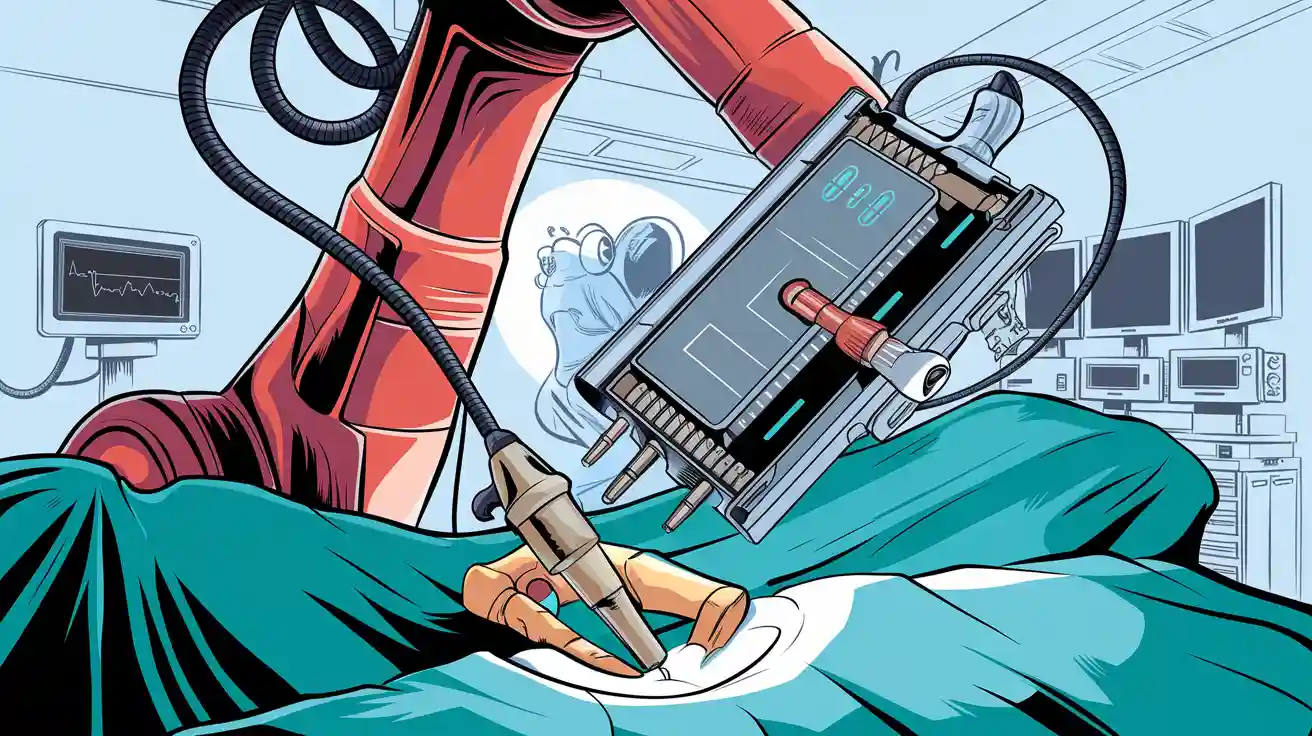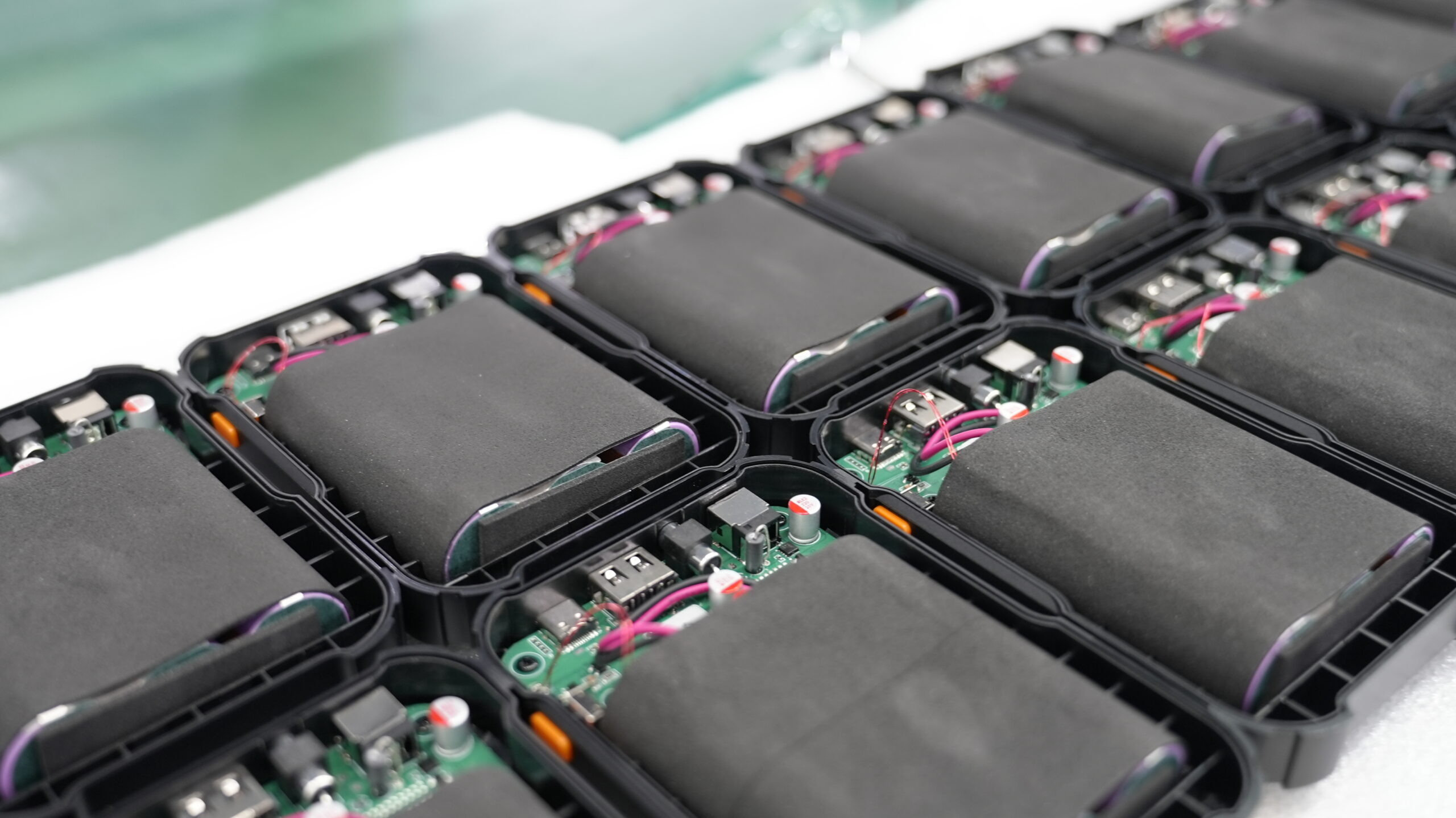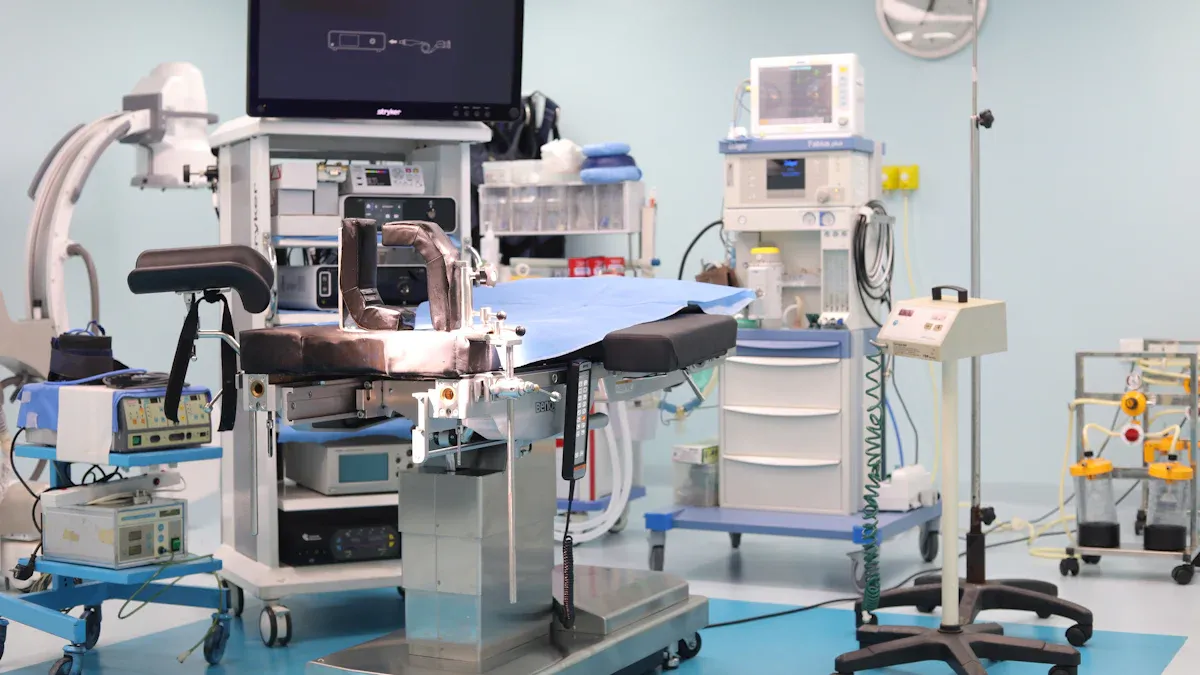
You depend on high-precision battery solutions to keep surgical procedures running smoothly. High-precision battery solutions deliver consistent power in demanding surgical environments. High-precision battery solutions protect sensitive equipment and support advanced lithium battery packs. High-precision battery solutions minimize risks in surgical settings. High-precision battery solutions enhance safety during surgical operations, especially with surgical robots.
Key Takeaways
High-precision battery solutions are essential for surgical robots, ensuring consistent power and minimizing risks during operations.
Custom lithium battery packs provide tailored energy solutions, enhancing operational efficiency and reducing downtime in surgical settings.
Solid-state batteries offer superior safety features, such as reduced fire hazards and longer lifespans, making them ideal for critical medical applications.
Part 1: High-Precision Battery Solutions

1.1 Power Demands in Surgical Robots
You face unique challenges when powering surgical robots in medical environments. These advanced systems require precise, uninterrupted battery power to support delicate procedures. Even a brief power interruption can have serious consequences.
Power interruptions in surgical robots can lead to surgical errors, misdiagnoses, or communication failures.
Such disruptions pose significant risks during operations, highlighting the critical need for reliable power systems in clinical settings.
The frequency of these interruptions is not always documented, but the emphasis on power reliability shows that they remain a notable concern.
You must select battery solutions that deliver consistent energy output and support extended operational uptime. Custom lithium battery packs provide the high energy density and reliability needed for these demanding applications. By choosing advanced battery technologies, you reduce the risk of surgical complications and improve patient outcomes.
1.2 Solid-State and Lithium Technologies
You have several options when selecting batteries for surgical robots. Solid-state batteries and custom lithium battery packs stand out for their superior performance. The table below compares solid-state batteries with traditional lithium-ion batteries, using standardized terminology for each chemistry:
Feature | ||
|---|---|---|
Energy Density | Higher due to metallic lithium anodes | Lower due to graphite anodes |
Efficiency | Faster charging and discharging capabilities | Slower compared to solid-state batteries |
Safety | Less prone to thermal runaway and fire hazards | Higher risk due to liquid electrolytes |
Lifespan | Longer lifespan | Shorter lifespan |
Design Flexibility | More compact and lightweight designs possible | Limited by liquid electrolyte design |
Solid-state batteries use a solid electrolyte, which eliminates the risk of leakage and reduces fire hazards. You benefit from higher energy density, which allows for more compact and lightweight designs. Custom lithium battery packs, including chemistries like NMC (Nickel Manganese Cobalt Oxide), LCO (Lithium Cobalt Oxide), LiFePO4 (Lithium Iron Phosphate), LMO (Lithium Manganese Oxide), and LTO (Lithium Titanate Oxide), offer tailored solutions for different surgical applications. These packs deliver the efficiency and safety required for high-precision surgical robots.
Tip: Solid-state batteries provide high reliability for surgical robots, making them ideal for critical medical applications.
1.3 Safety and Protection Features
You must prioritize safety and reliability when designing battery systems for surgical robots. Multi-layer protection circuits play a crucial role in preventing overheating and short circuits. Key features include:
Multi-level protections, such as overcurrent detection with a threshold of 300A.
Short-circuit detection with a response time of 50–150µs.
Immediate disconnect methods to prevent catastrophic incidents.
Real-time problem identification to enhance safety.
Integration of temperature sensors that trigger power throttling or cooling systems.
Battery management systems (BMS) further optimize battery performance and longevity. These systems monitor the state of charge (SOC) and state of health (SOH), maintain safe operating temperatures, balance cells, and provide real-time diagnostics. The table below summarizes these features:
Feature | Benefit |
|---|---|
State of Charge (SOC) | Ensures optimal energy usage and prevents over-discharge. |
State of Health (SOH) | Monitors battery condition to prevent failures and extend lifespan. |
Thermal management | Maintains safe operating temperatures to prevent overheating. |
Cell balancing | Ensures even charge distribution among cells for maximum efficiency. |
Real-time diagnostics | Provides immediate feedback on battery status, enhancing safety and performance. |
You must also comply with strict regulatory standards. The table below outlines key standards that influence battery system design for surgical robots:
Standard | Description |
|---|---|
ISO 14971 | Addresses risk management for medical devices, including battery systems. |
IEC 60601 series | Provides requirements for basic safety and essential performance of medical electrical equipment, impacting battery design. |
IEC 80601-2-77 | Specific to surgical robots, includes safety and performance requirements that may influence battery system design. |
IEC 80601-2-78 | Covers safety and performance for rehabilitation robots, relevant for battery considerations. |
IEC TR 60601-4-1 | Offers guidance on medical equipment with autonomy, affecting battery system implementation. |
Custom lithium battery packs designed for surgical robots meet these standards and deliver the safety and reliability you require. By integrating advanced protection features and robust battery management, you ensure that your surgical robots operate safely and efficiently, even in the most demanding clinical environments.
Part 2: Custom Lithium Battery Packs in Surgical Robots

2.1 Design and Adaptation
You need battery solutions that fit seamlessly into the compact and complex structure of surgical robots. Custom lithium battery packs are engineered to match the unique dimensions and power requirements of each surgical system. Manufacturers shape these batteries to fit the robot’s internal architecture, ensuring that the battery does not interfere with the robot’s movement or function. You benefit from batteries that deliver the exact voltage and current needed for each surgical procedure, which enhances operational efficiency and safety.
A battery management system (BMS) monitors battery health and charge status in real time. This system helps you maintain safety and performance in sensitive healthcare environments. You can rely on custom lithium battery packs for long-life cycles, which reduces the frequency of replacements and minimizes downtime in surgical settings.
Note: Custom lithium battery packs can be designed in various forms, including prismatic, cylindrical, and pouch cells, to maximize space and energy density within surgical robots.
2.2 Performance and Reliability
You require high-capacity energy storage and instant high-power output for surgical robots. Custom lithium battery packs deliver both. These batteries support fast charging and high discharge rates, which are critical during surgical procedures that demand uninterrupted power. You can trust these batteries to provide long operational life, reducing the risk of power loss during surgery.
Key performance features include:
High-capacity energy storage for extended surgical procedures.
Instant high-power output for precise robotic movements.
Fast charging capabilities to minimize turnaround time between surgeries.
High discharge rates to support demanding surgical tools.
The table below highlights the performance advantages of custom lithium battery packs compared to standard battery solutions:
Feature | Custom Lithium Battery Packs | Standard Battery Solutions |
|---|---|---|
Energy Storage | High | Moderate |
Power Output | Instant, High | Limited |
Charging Speed | Fast | Slow |
Discharge Rate | High | Moderate |
Operational Life | Long | Short |
You see these performance benefits reflected in the reliability of surgical robots. The integration of solid-state batteries further enhances safety and efficiency. These batteries offer compact size, high power density, and advanced safety features. They eliminate risks of combustion and leakage, making them ideal for surgical environments. You can recharge these batteries in-vivo and pair them with energy harvesting technologies, which supports innovative surgical procedures and extends operational efficiency.
2.3 Industry Applications
You find custom lithium battery packs in a wide range of industry applications. In the medical field, they power advanced surgical robots, ensuring precise and reliable operation during critical procedures. In robotics, these batteries support autonomous systems that require consistent, high-performance energy sources. Security systems use custom lithium battery packs for backup power and continuous monitoring. Infrastructure projects rely on these batteries for remote monitoring and control. Consumer electronics benefit from compact, high-density battery solutions. Industrial automation systems depend on custom lithium battery packs for uninterrupted operation.
You see design adaptations from aerospace and medical industries shaping the development of these battery packs:
Aerospace technology has led to reliable, anti-flammable lithium-ion batteries for space missions, now used in hospitals for robotic surgeries.
These batteries ensure continuous operation of robotic instruments, even during power outages.
Manufacturers can create solid-state batteries in various forms and sizes, allowing customization for specific energy needs in surgical applications.
Tip: If your application requires flexible form factors, consider lithium-polymer (LiPo) batteries for their lightweight and adaptable design.
You can expect future trends to focus on sustainability, advanced battery chemistries, and smarter battery management systems. The industry continues to innovate with solid-state technology, improved safety features, and longer life cycles. These advancements will further enhance the performance and reliability of surgical robots, supporting better outcomes in healthcare and beyond.
You advance surgical robot safety and performance by choosing high-precision battery solutions. Custom lithium battery packs deliver reliability, longer service life, and fewer charge cycles.
Well-optimized battery systems reduce downtime.
Enhanced operational efficiency lowers total cost of ownership.
Solid-state technology and multi-layer protection circuits continue to shape future surgical outcomes. You strengthen your robotics strategy by prioritizing advanced battery solutions.
FAQ
What makes lithium battery packs ideal for medical robots?
You gain high energy density, reliability, and safety with lithium battery packs. These features support uninterrupted operation for medical robots, especially during complex robotic surgery.
How do custom battery solutions from Large Power benefit robot developers and system integrators?
You receive tailored voltage, current, and form factors. Large Power custom battery solutions help robot developers and system integrators optimize performance and safety for advanced robotic systems.
Can lithium battery packs support the demanding power needs of robotic surgery?
You achieve stable, high-discharge rates and fast charging. Lithium battery packs ensure continuous power delivery, which is essential for precision and safety in robotic surgery applications.




